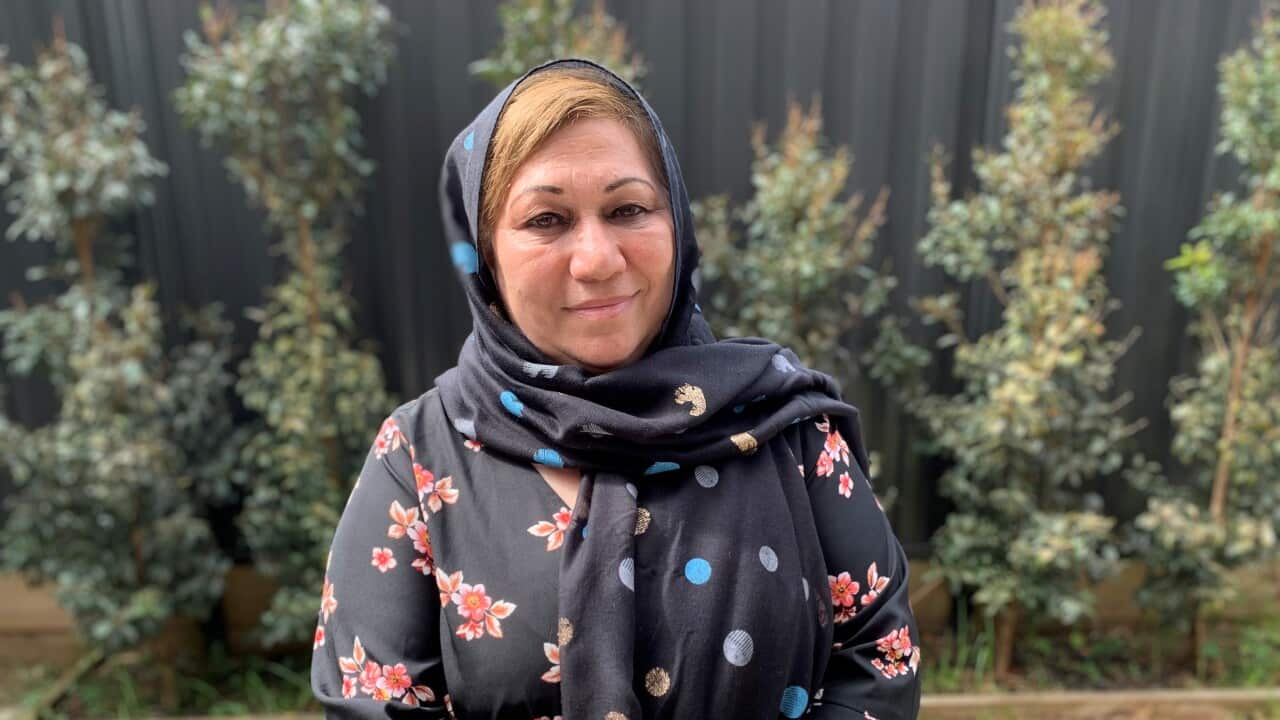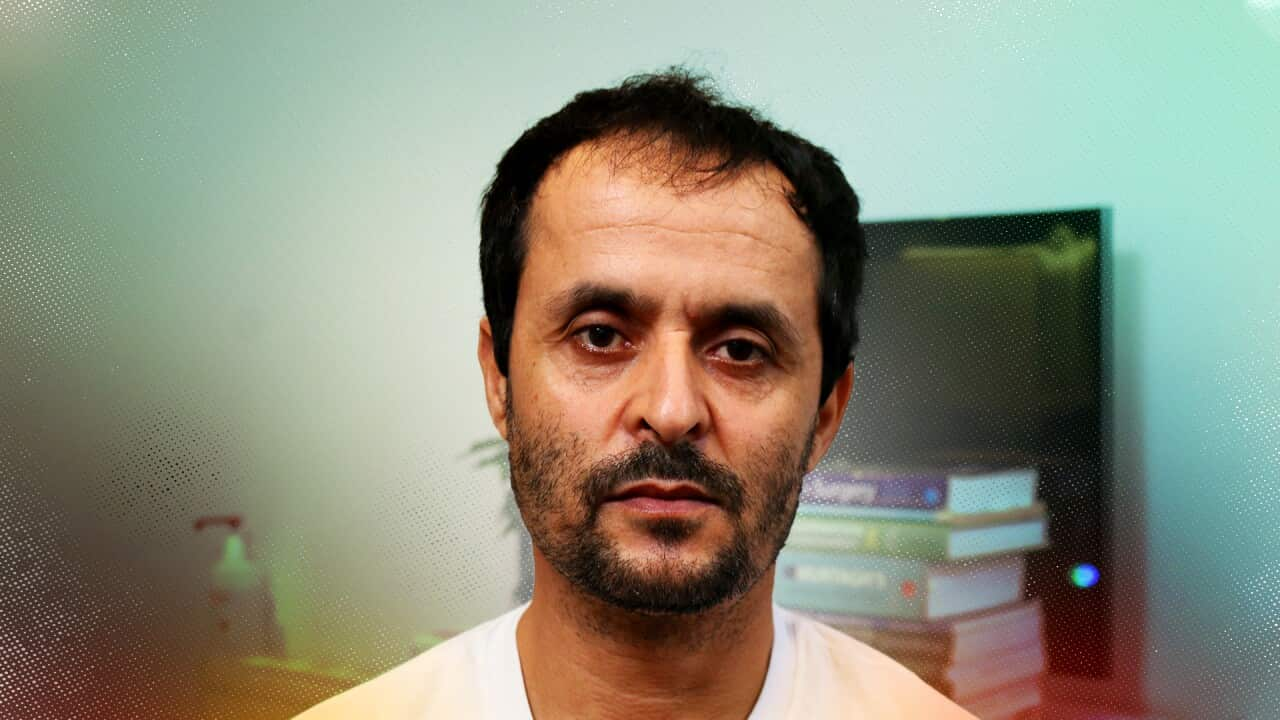As the stormed the Afghan capital, Kabul, last August, judge Shakila Abawi Shigarf was in her office.
As the news filtered through of what was happening, she did not know what to take with her, but she knew she had to leave to save her life.
“I left the office and I didn’t know what to take — I was thinking to take my log book, my laptop I didn’t know what to take I just wanted to save my life,” she told SBS News.
The 61-year-old walked for hours to get home, finally reaching her family. Then she and her family started the difficult process of leaving their homeland.
“I wasn’t only afraid for myself, but I was also afraid for my family that they don’t get kidnapped because the threats were there and we were targeted by suicide attacks and two judges were assassinated,” she said.
Mrs Shigarf has spent nearly 25 years as a judge and leaving her prominent position and all her hard work behind was difficult.

Judge Shakila Abawi Shigarf in her office in Afghanistan. Source: SBS News / Supplied
Many of these criminals were released when Kabul fell, placing her and her family in danger.
The International Association of Women Judges swung into action after her family was issued with emergency visas and members of the association’s Australian branch were able to find them a pathway out.
‘’We are thankful to the judges association for finding an alternative route to get us out of Afghanistan,” she said.
“We were asked to travel to Mazar-i-Shariff (a city in northern Afghanistan), but it was still a dangerous route as the Taliban was everywhere and we were afraid we might get caught or they might take our family members.”
They eventually got out travelling to Greece, then Australia, and have settled in Melbourne.
Mrs Shigarf travelled with her husband, three adult children and their families, with one suitcase.

Shakila Abawi Shigarf with her family (left to right): son Tariq Shigarf, husband Gul Mohammad Shigarf, daughter-in-law Mahnz Shigarf, and son Ahmad Sear Shigarf. Source: SBS News / Gloria Kalache
“The association was working hard with the Afghan Women Judges Association about what might happen when the Americans and Australians and others withdrew from the country,” said Fleur Kingham, president of the Australian Association of Women Judges.
“We made a commitment then, through the International Association, that we would not forget them and that we would do what we could.”
So far they have helped at least 17 women judges and their families settle in Australia.
The next part of the journey has been finding a way to utilise their legal knowledge in an Australian context.
The association has set up a buddy program, connecting the new arrivals with current and former judges.
It's hoped the buddy program will help to recognise their skills and the important role they played in their homeland.
The association is also looking at helping some of the women to gain employment as mediators or connecting them with law schools so they can pass on their unique legal and cultural knowledge.
"I think they appreciate an organisation that understands their role, their status, their position, their education and so we are doing what we can to ensure that they continue to be recognised in that context,” said Ms Kingham.
Former Chief Justice of the Family Court of Australia, Diana Bryant, has been helping Mrs Shigarf and her family settle into their new life.
Ms Bryant said they have established a real connection.

Former Chief Justice of the Family Court of Australia Diana Bryant. Source: SBS News / Gloria Kalache
“They had a prominent position in their society and having something to look forward to is difficult so I see that as really important."
For now, though Mrs Shigarf said she is grateful for being given the opportunity to settle here, her greatest gratitude is for the women of the association.
“I’m thanking them that they really helped us a lot, that they have really helped us to get out of a situation where we could have been killed,” Mrs Shigarf said.
She said they have now gained another family, with people such as Ms Bryant.
“She introduced us to people, to beaches and to places that we haven’t seen before and it was very important to be connected to these places,” Mrs Shigarf said.
“She has helped us a lot and we feel so lucky and think that we have a sister here.”











